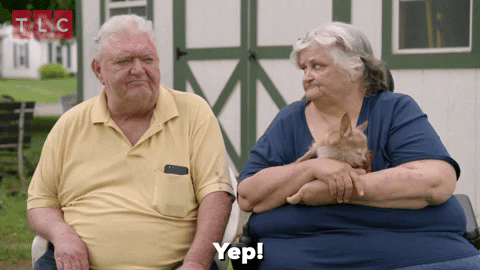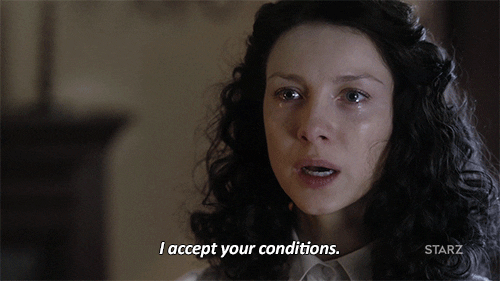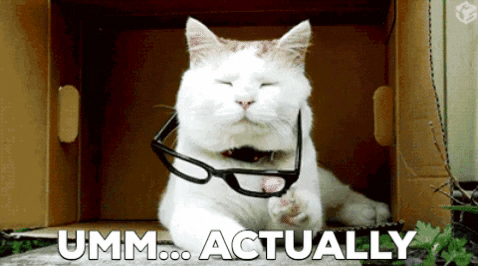Understanding Your Partner In a Conflict: Learn The Conflict Management Style types
Uh oh. It happened again. You and your partner disagree about something. Maybe it is big, maybe it is small, but there is something between you that you just cannot seem to resolve. You may feel insecure in your relationship when conflict occurs, but it is a good idea to take a step back and assess the situation from afar. Remember, conflict is not a sign of an unhealthy relationship. In fact, some of the healthiest relationships have a great deal of conflict! Previous experiences and negative connotations of conflict cause our brain to send us a warning signal: Danger! Danger! Danger! When this happens, the brain often goes into one of three modes: fight, flight, or freeze. Any one of these responses can actually get in the way of conflict resolution! The goal is to help your brain slowly realize that conflict is okay, and thus avoid the urge to fight, flight, or freeze. Here are five examples of how you and your partner might approach conflict resolution.
1. The Accommodator
The accommodator wants to keep the peace at all costs. This person feels like it is their responsibility to keep the relationship running smoothly, so they will do what it takes to avoid any harsh interactions between them and their partner. They often have a flight response when it comes to conflict - they want to get as far away from it as possible! Accommodators often lay down their own desires so that the conflict dissipates. They give in to their partner's wishes because they want to see their partner happy and they want to avoid bumps in the road. They outwardly agree with their partner, even if they disagree inwardly. This may mean that they bottle up their feelings and desires to the extent that they never actually get heard and the couple never truly learns to resolve a conflict. If you are an accommodator, remember that your wishes matter and bumps in the road can actually be good for a relationship! You can (and should) be assertive about what you want. If your partner is an accommodator, make sure to ask them what they want often - and truly listen to what they have to say!
2. The Avoider
The avoider is a person whose freeze response kicks in when conflict presents itself. Conflict terrifies them, and they would prefer to simply pretend it does not exist. This person probably harbors some difficult memories of badly-handled conflict from their childhood, and thus their freeze response is deeply rooted. They may have never seen a healthy example of conflict resolution. The avoider shuts down when the subject of conflict is brought up. Because of their internal trigger, they externally look like they are stonewalling their partner (refusing to speak, being emotionally distant, etc.). If you are an avoider, give yourself space to start slowly. When you are not in the heat of the moment, take a moment to tell your partner how your brain reacts to conflict so that they understand you. If your partner is an avoider, give them space to open up to you. Let them know that conflict between you will not make you love them less.
3. The Compromiser
The compromiser sees the transaction as the path out of conflict. "If you do x for me, I do y for you," is their general mentality (it can be conscious or unconscious). Compromisers understand that a healthy relationship requires sacrifice, but sometimes they take it too far. Some compromises are good, while others undermine the very core of the person. Compromisers might be willing to give up things they ought to hold onto (like emotional safety or their independence) in order to get something else they want. Sometimes they also ask their partners to make compromises that are not healthy just for the sake of staying away from conflict. If you are a compromiser, take some time to ask yourself what values and principles are so important to you that you cannot and should not give them up (do this before a conflict begins) and ask your partner to do the same. If your partner is a compromiser, be careful that you do not accept compromises that would be harmful to either of you. Dig deeper into the problem, asking each other, "Is there a way we can solve this while still each getting our needs met?"
4. The Competitor
The competitor has to be right. When a conflict comes up, their brain triggers them to fight. Competitors tend to see situations in black and white - someone is right and someone is wrong and that is the end of it. Often, this person does not take conflict personally, nor do they necessarily want to attack their partner as a person (when they are attacking their partner personally, this is a sign of even deeper issues). Instead, they are holding passionately to their beliefs because they are convinced they are right and they feel the need to prove it. If you are a competitor, ask yourself this question: "What is more important: being right or maintaining a loving relationship?" Try to put yourself in your partner's shoes and understand how they are feeling. Maybe the world is not so black and white after all. If your partner is a competitor, guide the conflict away from their fighting instincts. Tell them, "I know you feel strongly about this, but it hurts me when you talk like that." For both people in the relationship, it will help to resist the urge to argue about concepts and instead focus on a concrete goal or outcome.
5. The Collaborator
The collaborator recognizes that each side of the conflict is important and deserves to be listened to. Both people in the relationship have something important to offer. The collaborator is focused on solutions rather than obsessing over the problem. They do not see their partner as an enemy. Rather, they and their partner are teammates working together to solve the conflict. The collaborator is assertive about their wants and needs but also knows that they do not have all the answers. They do not rush to solve the conflict as quickly as possible, because they know that their relationship is bigger than the conflict. Instead of a fight, flight, or freeze response, they feel a pull of curiosity, inspiring them to seek solutions to the problem. If you and your partner are collaborators, great! You have realized that conflict actually does not mean danger, so you can begin to work on the current problem. It will help you if you write out your wishes, some concrete goals, and possible solutions to your problem so you can discuss them together.
Remember, no one stays the same. If you have some unhealthy conflict resolution habits, it is not the end of the world. You can guide your personality away from unhealthy habits and build new, helpful habits that respect both you and your partner. If you feel your relationship could use a little help, visit Couple Summit for our relevant, self-led couples course!






